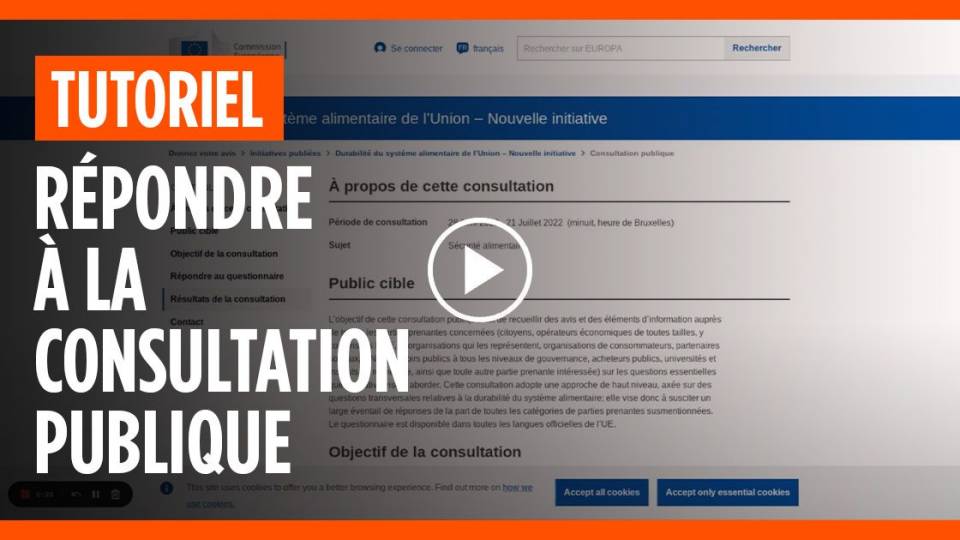

Eating plant-based is 6 times more effective for the environment than eating organic and local according to Carbone 4 , and it takes 4 times more land to feed a person with a high meat consumption than to feed a vegan person according to ADEME .
In addition to causing unacceptable suffering for animals, intensive farming, which represents 80% of French production, has many impacts on the environment. One thing is certain: raising so many animals cannot be considered a sustainable practice. We must drastically reduce the production of meat, milk and eggs.
Luckily, the European Commission has opened a public consultation to “ensure the sustainability of the EU food system and integrate sustainability into all food-related policies”.
Tell the European Commission that many farming practices are unsustainable
The European Commission's consultations aim to gather the opinions of citizens, businesses and NGOs on an ongoing legislative project. Too few people answer it. This is why we need you: the Commission must hear your voice.
Allow 20 minutes , and make yourself comfortable. We've put together a video tutorial to help you answer the questions. You can also use the free fields to send a clear message to the Commission: products from livestock farming, and particularly those from intensive systems, have no place in a “sustainable food system”.
→ I participate in the consultation
The stakes are high: thanks to your participation, the EU will hear voices other than those of the farming lobbies!
In addition to the tutorial, here is a summary of the answers we suggest you give to particularly important questions.
Question 1: “completely agree” everywhere.
Question 5: free expression. You can list the obstacles to the transition to more sustainable practices as you wish: for example, the common agricultural policy subsidizes intensive farming and fishing, the EU subsidizes advertisements for consuming meat or milk, there is no there is no proactive policy to reduce the production and consumption of meat, etc.
Question 6: “insufficiently” everywhere.
Question 8: “completely agree” everywhere.
Question 9: “very important” everywhere.
Question 20: “totally agree” for the plant-based option in collective catering.
Question 21: “strongly agree” to “When designing policies that affect food prices (such as subsidy mechanisms and taxation), competent authorities should consider how these policies can encourage higher consumption of whole grains of cereals, vegetables, fruits, legumes and nuts as well as lower consumption of red meat and foods high in sugars, salt and saturated fats”.
The environmental impact of farming
According to a 2013 FAO report, livestock is responsible for 14.5% of human-made greenhouse gas emissions , more than all transport combined. Greenpeace claims that cattle ranching is responsible for 65% of the destruction of the Amazon rainforest , and is a major cause of deforestation and biodiversity loss.
Ammonia emissions lead to acid rain. They are 95% of agricultural origin, 80% of which come from livestock. Ammonia pollution led the Netherlands in September 2021 to announce a 30% reduction in its livestock.
Intensive livestock farming causes nitrates to seep into groundwater and often jeopardizes drinking water supplies. According to Greenpeace, in Brittany, livestock generates concentrations of nitrates per liter of water that are nearly 10 times higher than a situation without human pollution. The resulting proliferation of green algae suffocates the fauna and flora of the coast.
For all these reasons, and given the immense suffering of animals on farms, your participation in this consultation is crucial. We are counting on you.
Posted on 2022-07-08 10:05








Comments